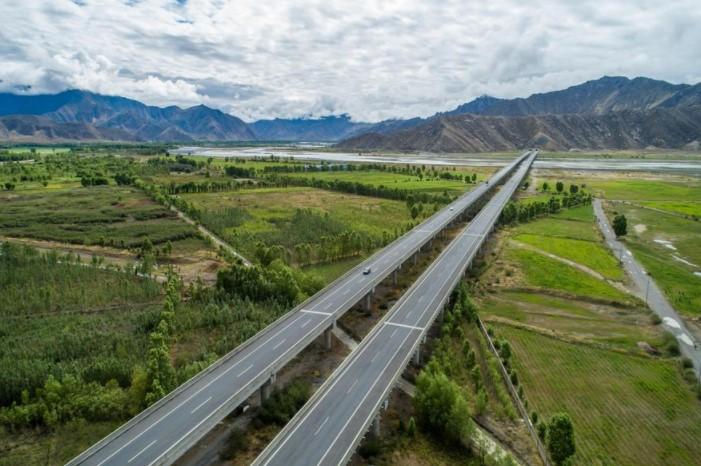Improving transport makes life more convenient for Xizang residents
LHASA, July 3 (Xinhua) -- Nyima Tsering, 46, worked with his neighbors to level a piece of land next to their village of Carag under the city of Quxu, southwest China's Xizang Autonomous Region, for a tourist picnic place. The villagers saw a business opportunity after a high-grade highway officially opened to traffic on Sunday. The highway, linking the regional capital Lhasa and Xigaze, the region's second-largest city, stretches 245 km and reduces travel time between the two cities by half to about three hours. "In the past, the dirt road was very troublesome for villagers to go to Lhasa. Seeing a doctor or doing business was often delayed due to uncertainties on the journey," Nyima Tsering said. Their village is only one hour away from Lhasa, thanks to the new highway. "It is easier for farm produce and livestock products to be transported to Lhasa, and villagers are planning to strike gold in rural tourism." "The flow of people, vehicles and logistics passing by and arriving in our township will increase. We plan to develop farming experience tours and family restaurants," said Wang Shengkui, head of a township under Xigaze along the new highway. The high-grade highway marks another significant development in the region's transport after the 251-km railway line that links Lhasa and Xigaze opened in 2014. The 435-km railway line that links Lhasa and Nyingchi opened in 2021. Last December, the second runway of Lhasa's international airport began operation. So far, the length of roads in Xizang has exceeded 120,000 km, and all counties, townships and administrative villages have access to asphalt or hardened roads. Xizang attracted 55.17 million domestic and foreign tourists in 2023, thanks to the rapid development of highways, railways and civil aviation. Tens of thousands of farmers and herders have found new tourism-related jobs. "With the opening of railways and highways, more and more tourists visited places such as Xigaze and Nyingchi other than just staying in Lhasa," said Zhang Tao, a tour guide based in Lhasa.
